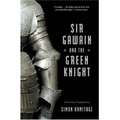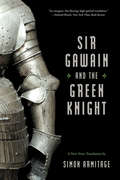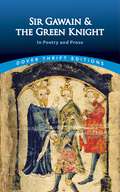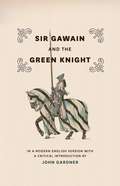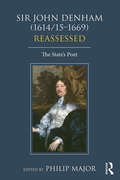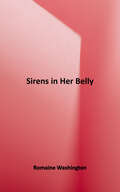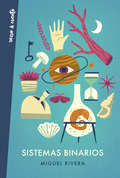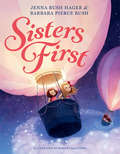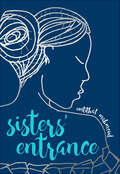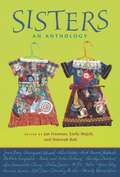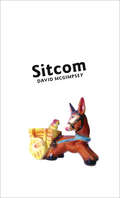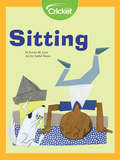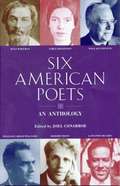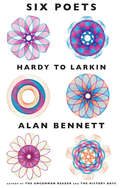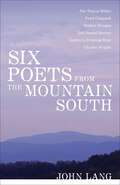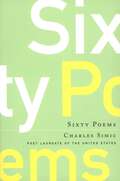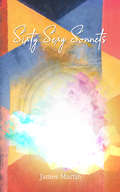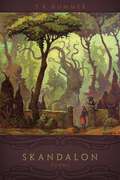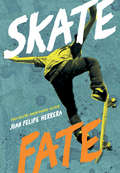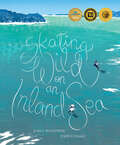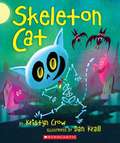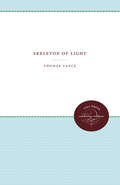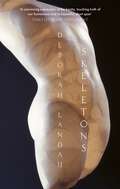- Table View
- List View
Sir Gawain and the Green Knight: A New Verse Translation
by Simon ArmitageA poetic translation of this six-hundred-year-old Arthurian story of beheading, romance, and the supernatural.
Sir Gawain and the Green Knight: A New Verse Translation (Faber Poetry Ser.)
by Simon Armitage"Compulsively readable. ... Simon Armitage has given us an energetic, free-flowing, high-spirited version."--Edward Hirsch, New York Times Book Review One of the earliest great stories of English literature after ?Beowulf?, ?Sir Gawain? is the strange tale of a green knight on a green horse, who rudely interrupts King Arthur's Round Table festivities one Yuletide, challenging the knights to a wager. Simon Armitrage, one of Britain's leading poets, has produced an inventive and groundbreaking translation that "[helps] liberate ?Gawain ?from academia" (?Sunday Telegraph?).
Sir Gawain and the Green Knight: In Prose and Poetry (Dover Thrift Editions)
by Jessie L. WestonWhile the knights of King Arthur's Round Table are toasting the new year, a colossal stranger clad in green armor bursts in to deliver a formidable challenge: Any of them may strike off the intruder's head as long as he is prepared to receive a similar blow from the Green Knight in one year. Of all the gallant knights in the assembly, only Sir Gawain—brave, gallant, and true to his word—is willing to answer the dare. So begins this gem of medieval English literature, which traces Gawain's adventures as he endeavors to fulfill his pledge.Dating from the late fourteenth century or earlier, the story blends paganistic elements with Christian ethics to celebrate the virtue of forgiveness, thus forming a classic example of the chivalric tradition. This edition presents the legend in two forms: in prose and in verse, both translated by the distinguished scholar Jessie Weston.
Sir Gawain and the Green Knight: In a Modern English Version
by John GardnerThe adventures and challenges of Sir Gawain, King Arthur's nephew and a knight at the Round Table, including his duel with the mysterious Green Knight, are among the oldest and best known of Arthurian stories. Here the distinguished author and poet John Gardner has captured the humor, elegance, and richness of the original Middle English in flowing modern verse translations of this literary masterpiece. Besides the tale of Sir Gawain and the Green Knight, this edition includes two allegorical poems, "Purity" and "Patience"; the beautiful dream allegory "Pearl"; and the miracle story "Saint Erkenwald," all attributed to the same anonymous poet, a contemporary of Chaucer and an artist of the first rank. "Mr. Gardner has translated into modern English and edited a text of these five poems that could hardly be improved. . . . The entire work is preceded by a very fine and complete general introduction and a critical commentary on each poem. "--Library Journal
Sir Gawain and the Green Knight: In a Modern English Version with a Critical Introduction
by John Gardner Fritz KredelThe adventures and challenges of Sir Gawain, King Arthur’s nephew and a knight at the Round Table, including his duel with the mysterious Green Knight, are among the oldest and best known of Arthurian stories. Here the distinguished author and poet John Gardner has captured the humor, elegance, and richness of the original Middle English in flowing modern verse translations of this literary masterpiece. Besides the tale of Sir Gawain and the Green Knight, this edition includes two allegorical poems, “Purity” and “Patience”; the beautiful dream allegory “Pearl”; and the miracle story “Saint Erkenwald,” all attributed to the same anonymous poet, a contemporary of Chaucer and an artist of the first rank. “Mr. Gardner has translated into modern English and edited a text of these five poems that could hardly be improved. . . . The entire work is preceded by a very fine and complete general introduction and a critical commentary on each poem.”—Library Journal
Sir John Denham (1614/15–1669) Reassessed: The State's Poet
by Philip MajorSir John Denham (1614/15–1669) Reassessed shines new light on a singular, colourful yet elusive figure of seventeenth-century English letters. Despite his influence as a poet, wit, courtier, exile, politician and surveyor of the king's works, Denham, remains a neglected figure. The original essays in this interdisciplinary collection provide the sustained modern critical attention his life and work merit. The book both examines for the first time and reassesses important features of Denham's life and reputations: his friendship circles, his role as a political satirist, his religious inclinations, his playwriting years, and the personal, political and literary repercussions of his long exile; and offers fresh interpretations of his poetic magnum opus, Coopers Hill. Building on the recent resurgence of scholarly interest in royalists and royalism, as well as on Restoration literature and drama, this lively account of Denham's influence questions assumptions about neatly demarcated seventeenth-century chronological, geographic and literary boundaries. What emerges is a complex man who subverts as well as reinforces conventional characterisations of court wit, gambler and dilettante.
Sirens in Her Belly
by Romaine WashingtonLike Lucile Clifton... Romaine's lyrical voice unmasks the hard truths of our human condition, particularly the oppression of women, through her unique use of diction, syntax, and extraordinary imagery, which engages the intellect and speaks to the souls of her readers - Dr. Catherine Humphrey, IAWP UCR Fellow Washington's book of poetry zeros in on the unique challenges women face in our modern world, and does it with unwavering strength. -Brit Middleton, BET, Editors Must-Read Books for 2016
Sistemas binarios
by RIVERA LOPEZ MIGUELEl letrista y vocalista de uno de los grupos indies más prestigiosos de nuestro país, Maga, publica ahora su primer poemario. Tú y yo, un sistema de relación capaz de crear un universo, de hablar de todas las cosas que lo componen combinándonos. Y a veces tú es mi propia voz en un intento de establecer comunicación con el yo primigenio. Dos miradas, dos bocas, dos cuerpos contorsionistas que, como un milagro, cuentan al oído la épica historia del inicio del mundo. Un sistema binario cuya correspondencia es capaz de explicarlo todo. Miguel Rivera, vocalista y letrista del grupo Maga, nos atrapa en estas páginas repletas de surrealismo, magia y cotidianeidad, al más puro estilo de su música. A través de poemas y textos narrativos viajaremos a lo largo y ancho de la galaxia imaginativa de este talentoso artista que estrena en este libro su faceta como escritor.
Sisters First: Stories From Our Wild And Wonderful Life
by Barbara Pierce Bush Jenna Bush HagerA lovely, lyrical ode to the magic of sisterhood by beloved former first daughters and bestselling authors Jenna Bush Hager and Barbara Pierce Bush.A young girl's wish is granted when a new sister arrives. While the baby can't do much, over time the big and little siblings become inseparable, playing and dancing, imagining and laughing. By each other's sides, they are smarter, kinder, and braver than they ever thought they could be. And they are forever sisters first.This exquisite celebration of the bond between sisters is inspired by the spirited childhood of Jenna Bush Hager and Barbara Pierce Bush, authors of the #1 New York Times bestseller Sisters First: Stories from Our Wild and Wonderful Life.
Sisters' Entrance
by Emtithal MahmoudBrimming with rage, sorrow, and resilience, this collection traverses an expansive terrain: genocide; diaspora; the guilt of surviving; racism and Islamophobia; the burdens of girlhood; the solace of sisterhood; the innocence of a first kiss. Heart-wrenching and raw, defiant and empowering, Sisters&’ Entrance explores how to speak the unspeakable.
Sisters: An Anthology
by Deborah Bull Jan Freeman Emily WojcikThis heartwarming and heart-wrenching collection of stories, memoirs, and poems celebrates the beautifully complex world of sisters. A relationship like no other, the unbreakable link between sisters can be at once sweet and loving, fierce and cruel. From childhood to old age, rivalry to devotion, hysterical laughter to tears of grief, the irrevocable bonds between sisters create a unique journey. Sisters: An Anthology is for anyone who knows sisters, wishes they had a sister, adores their own sister, or would, on occasion, like to trade her in.
Sitcom
by David McgimpseyImplicating extremes from Coriolanus to Karen Carpenter, David McGimpsey's Sitcom is both serious poetry and a work of comedy. Mischievous, generous and side-splittingly funny, this collection of wry soliloquies and sonnets begins with a milestone birthday and finds itself in demi-mondes as varied as the offices of university regents and the basic plot arc of Hawaii Five-O - offering, along the way, a sincere contemplation of mortality and the fashion sense of Mary Tyler Moore. Unembarrassed by its literary allusions or its hi-lo hybridity, Sitcom's strategic and encompassing voice is prepared for each comedic disaster and is, somehow, always ready for next week's episode.'McGimpsey displays erudition, clever insights and a knack for the wickedly funny wisecrack.'- The Washington Post'[McGimpsey] finds the humanity hiding in the hilarity. This guy is as funny as David Sedaris, and more inventive.'- The Ottawa Citizen
Six American Poets: An Anthology
by Joel ConarroeHere are the most enduring works of six great American poets, collected in a single authoritative volume. From the overflowing pantheism of Walt Whitman to the exquisite precision of Emily Dickinson; from the democratic clarity of William Carlos Williams to the cerebral luxuriance of Wallace Stevens; and from Robert Frost's deceptively homespun dramatic monologues to Langston Hughes's exuberant jazz-age lyrics, this anthology presents the best work of six makers of the modern American poetic tradition. Six American Poets includes 247 poems, among them such famous masterpieces as "I Hear America Singing," "The Idea of Order at Key West," "The Dance," and "Mending Wall," as well as lesser-known works. With perceptive introductory essays by the distinguished scholar Joel Conarroe and selections that capture the distinctive voices and visions of its authors, this volume is an invaluable addition to any poetry library.
Six Poets
by Alan BennettThe inimitable Alan Bennett selects and comments upon six favorite poets and the pleasures of their works In this candid, thoroughly engaging book, Alan Bennett creates a unique anthology of works by six well-loved poets. Freely admitting his own youthful bafflement with poetry, Bennett reassures us that the poets and poems in this volume are not only accessible but also highly enjoyable. He then proceeds to prove irresistibly that this is so. Bennett selects more than seventy poems by Thomas Hardy, A. E. Housman, John Betjeman, W. H. Auden, Louis MacNeice, and Philip Larkin. He peppers his discussion of these writers and their verse with anecdotes, shrewd appraisal, and telling biographical detail: Hardy lyrically recalls his first wife, Emma, in his poetry, although he treated her shabbily in real life. The fabled Auden was a formidable and off-putting figure at the lectern. Larkin, hoping to subvert snooping biographers, ordered personal papers shredded upon his death. Simultaneously profound and entertaining, Bennett's book is a paean to poetry and its creators, made all the more enjoyable for being told in his own particular voice. its creators, made all the more enjoyable for being told in his own particular voice.
Six Poets from the Mountain South: Sherman's Troops in the Savannah and Carolinas Campaigns (Southern Literary Studies)
by John LangIn the most extensive work to date on major poets from the mountain South, John Lang takes as his point of departure an oft-quoted remark by Jim Wayne Miller: "Appalachian literature is -- and has always been -- as decidedly worldly, secular, and profane in its outlook as the [region's] traditional religion appears to be spiritual and otherworldly." Although this statement may be accurate for Miller's own poetry and fiction, Lang maintains that it does not do justice to the pervasive religious and spiritual concerns of many of the mountain South's finest writers, including the five other leading poets whose work he analyzes along with Miller's. Fred Chappell, Robert Morgan, Jeff Daniel Marion, Kathryn Stripling Byer, and Charles Wright, Lang demonstrates, all write poetry that explores, sometimes with widely varying results, what they see as the undeniable presence of the divine within the temporal world. Like Blake and Emerson before them, these poets find the supernatural within nature rather than beyond it. They all exhibit a love of place in their poems, a strong sense of connection to nature and the land, especially the mountains. Yet while their affirmation of the world before them suggests a resistance to the otherworldliness that Miller points to, their poetry is nonetheless permeated with spiritual questing. Dante strongly influences both Chappell and Wright, though the latter eventually resigns himself to being simply "a God-fearing agnostic," whereas Chappell follows Dante in celebrating "the love that moves the sun and other stars." Byer, probably the least orthodox of these poets, chooses to lay up treasures on earth, rejecting the transcendent in favor of a Native American spirituality of immanence, while Morgan and Marion find in nature what Marion calls a "vocabulary of wonders" akin to Emerson's conviction that nature is the language of the spiritual. Employing close readings of the poets' work and relating it to British and American Romanticism as well as contemporary eco-theology and eco-criticism, Lang's book is the most ambitious and searching foray yet into the worlds of these renowned post--World War II Appalachian poets.
Sixty Poems: Nineteen Sixty-three To Nineteen Eighty-three
by Charles SimicHere are sixty of Charles Simic's best known poems, collected to celebrate his appointment as the fifteenth Poet Laureate of the United States.
Sixty Sexy Sonnets
by James MartinWith 'Sixty Sexy Sonnets', poet James Martin presents in sonnet form his 'Weltanschauung' - philosophy, religion, love, loves, lust, desire, hopes, people and pets. It is an intensely personal journey through the events, people and places, both internal and external, that express the soul within the man, on every page for all to see. Deeply serious and contemplative at times, mischievously tongue-in-cheek at others, Martin pulls no punches in this emotional and evocative expose of what it means to live in a world of contradictions - when love and belief emerge as life's only consolation in the face of madness and prejudice. In doing so, he does not ask the reader to agree, but to feel - and respond with the compassion 'la condition humaine' expects: 'one for all, and all for one'.
Skandalon: Poems (Southern Messenger Poets)
by T. R. HummerIn Christian theology, a skandalon is a distraction from grace, a maze of error where we wander pointlessly, wasting our lives. To the ancient Greeks, a skandalon was the trigger of a trap. T. R. Hummer's labyrinthine new collection encompasses these meanings and more, as its poems take various paths -- some beguiling, some grotesque, some instructive, some opaque -- to unexpected destinations. Undergirding the collection is a series of progressive vignettes entitled "Victims of the Wedding," which follows the quarrels and couplings of a human man and woman as well as the angel and demon who observe them.Skandalon presents poems that consider the subtle, tragic, and ridiculous responses of creatures who lose themselves in a world they had wrongly imagined to be their own.
SkateFate
by Juan Felipe HerreraI wanted to roar out touch things i had never touched. to see if it was true. was i still here was this life still here. on this side. whatever you call it dude. wanted to touch everything like van Gogh touched and smeared everything when he painted. so i wrote it and spoke it. maybe mama would hear me. cuz i could hear her. sayin' When your heart hurts, sing. wherever you go. Lucky Z has always lived on the edge-he loved to skateboard, to drag race, to feel alive. But things have taken a turn-he's living with new foster parents and a tragic past. An accident changed everything. And only his voice will set him free.
SkateFate
by Juan Felipe HerreraFrom U.S. Poet Laureate Juan Felipe Herrera comes the powerful journey of Chicano teen Lucky Z. A former skateboarder who's anything but lucky, he finds triumph and power through his voice. Raw, cool, real--this novel in verse is a shout-out to teens to find the extraordinary in the ordinary, to raise their voice and find strength in the sheer and simple power of expression.Lucky Z has always lived on the edge--he loved to skateboard, to drag race, to feel alive. But things have taken a turn--he's living with new foster parents and a tragic past. An accident changed everything. And only his voice will set him free. As you feel Lucky breathe in life again, you will want to shout out with him.
Skating Wild on an Inland Sea
by Jean E. PendziwolLet’s go! Experience the magic of skating on wild ice. Two children wake up to hear the lake singing, then the wind begins wailing … or is it a wolf? They bundle up and venture out into the cold, carrying their skates. On the snow-covered shore, they spot tracks made by fox, deer, hare, mink, otter … and the wolf! In the bay, the ice is thick and smooth. They lace up their skates, step onto the ice, stroking and gliding, and the great lake sings again. In her signature poetic style, Jean E. Pendziwol describes the exhilarating experience of skating on the wild ice of Lake Superior, including the haunting singing that occurs as the ice expands and contracts. Accompanied by Todd Stewart’s breathtaking illustrations, this book will make us all long to skate wild! Key Text Features illustrations Correlates to the Common Core State Standards in English Language Arts: CCSS.ELA-LITERACY.RL.1.3 Describe characters, settings, and major events in a story, using key details.
Skeleton Cat
by Kristyn CrowA spooky Halloween read-aloud guaranteed to tickle the smallest funny bones! After nine lives, Skeleton Cat is back for his tenth. And he has big dreams: to be a drummer. So he rattles and shakes his way through town to find the perfect band.
Skeleton of Light (Contemporary Poetry Series)
by Thomas VanceThe essential mind-mysteries are the subject of Vance's poems. Themes of mutability, maturation, discovery, and delight are projected through brilliant archetypal imagery controlled and perfected by a striking technical assurance. The poems are concentrated and sometimes demanding, but they are never obscure and they go deep.Originally published in 1961.A UNC Press Enduring Edition -- UNC Press Enduring Editions use the latest in digital technology to make available again books from our distinguished backlist that were previously out of print. These editions are published unaltered from the original, and are presented in affordable paperback formats, bringing readers both historical and cultural value.
Skeletons
by Deborah LandauWitty and glam, Skeletons is a prismatic collection which shrugs off even the most disillusioned nihilist with humour and intimacy.
